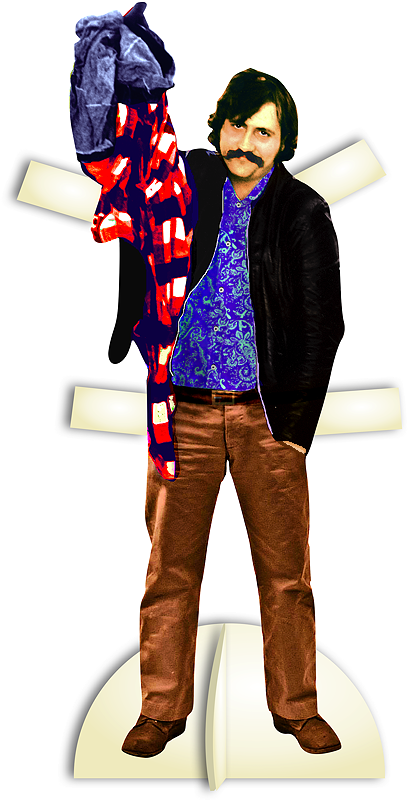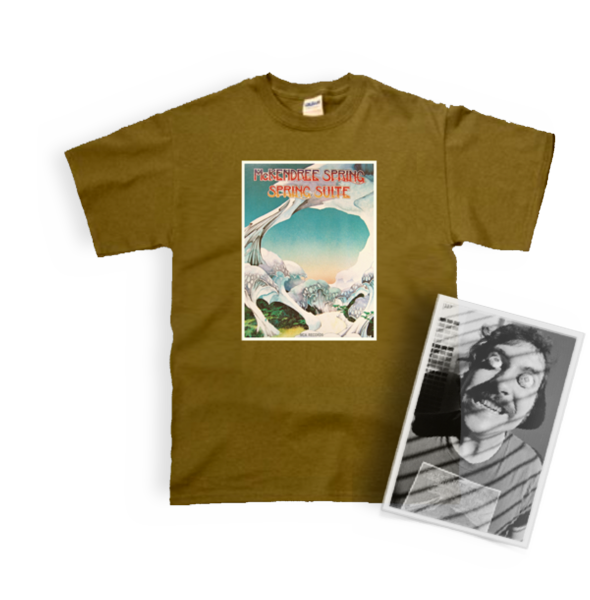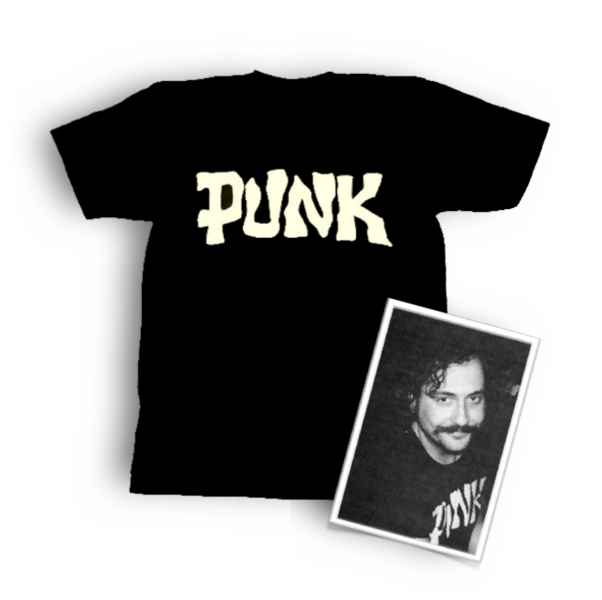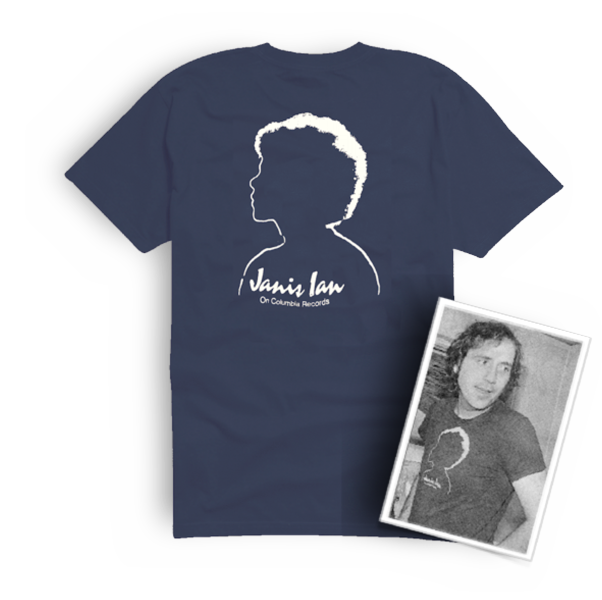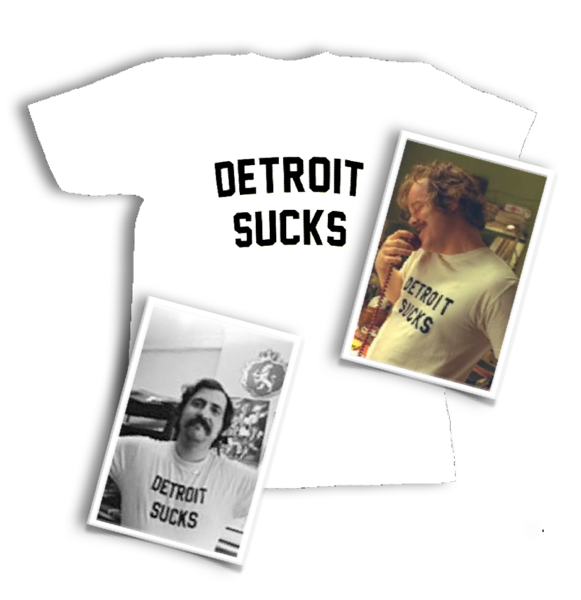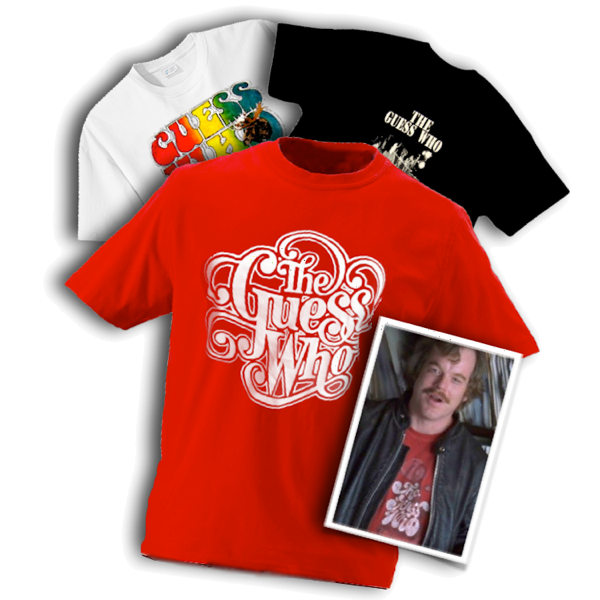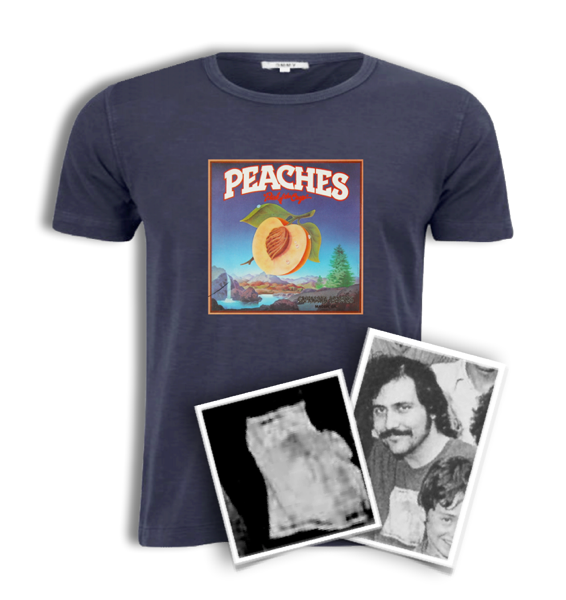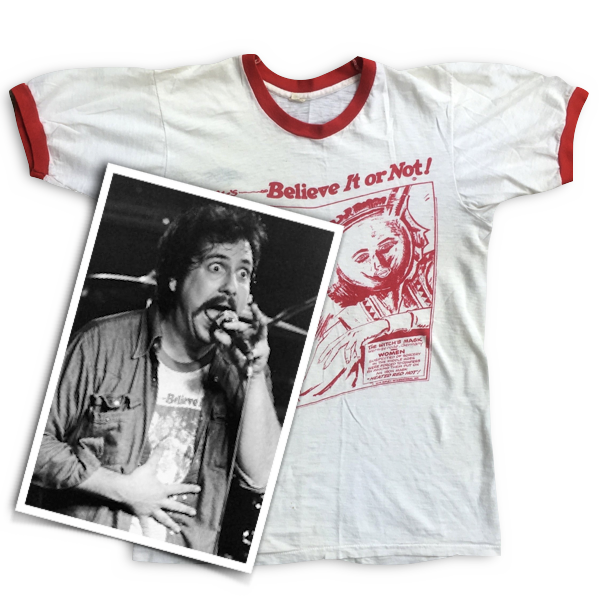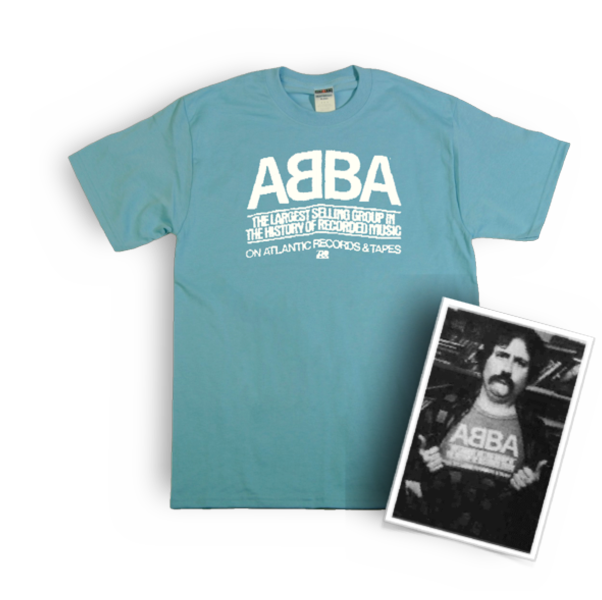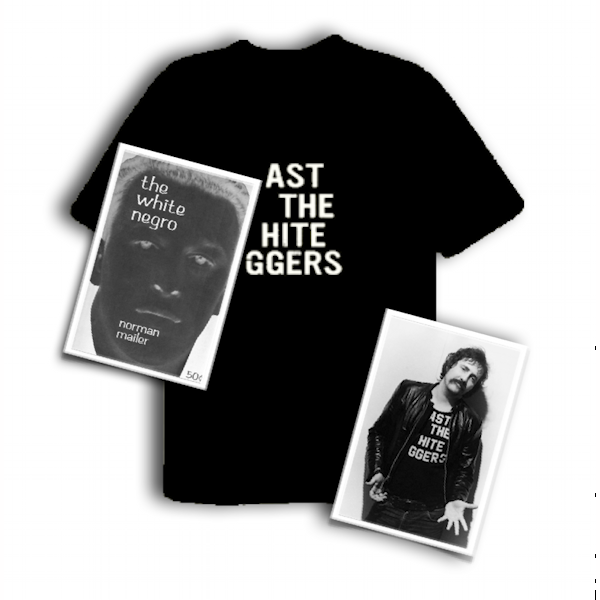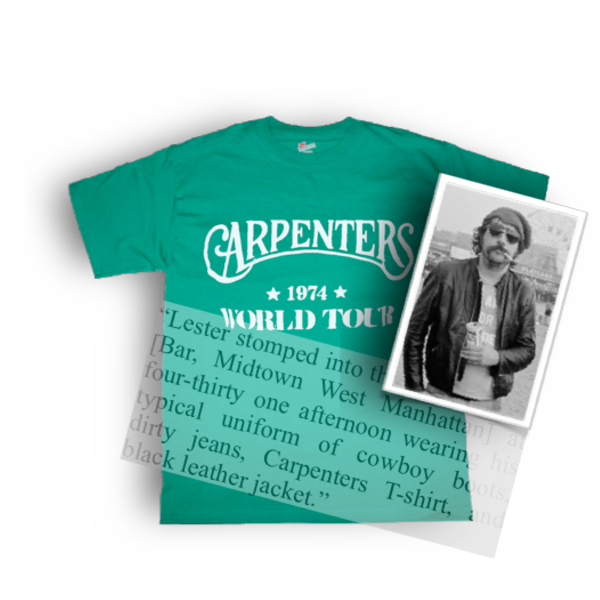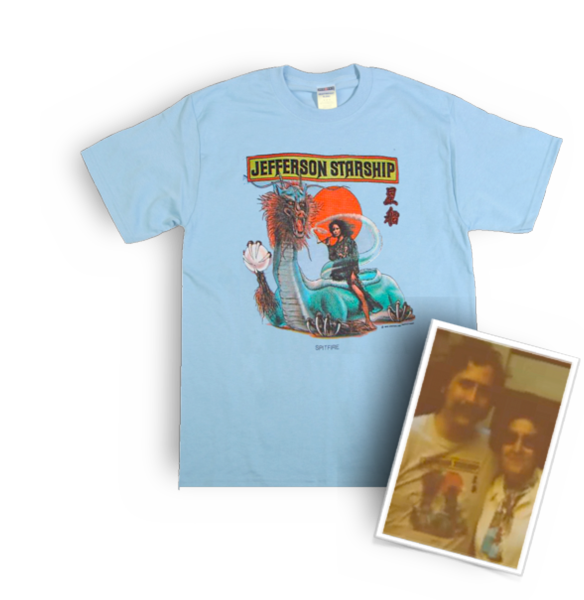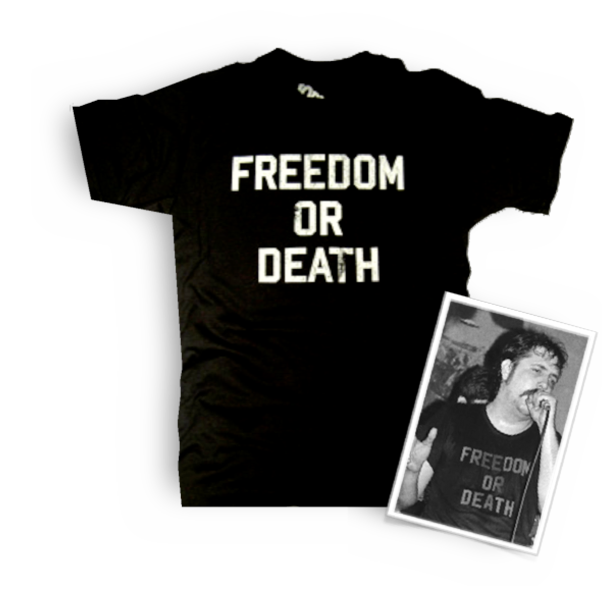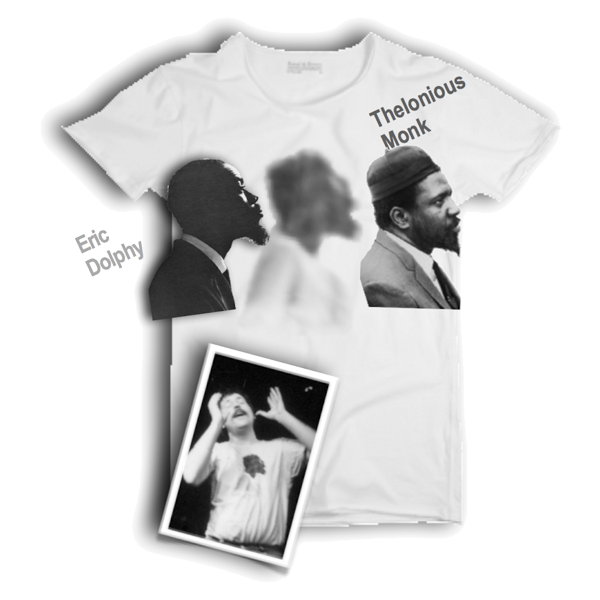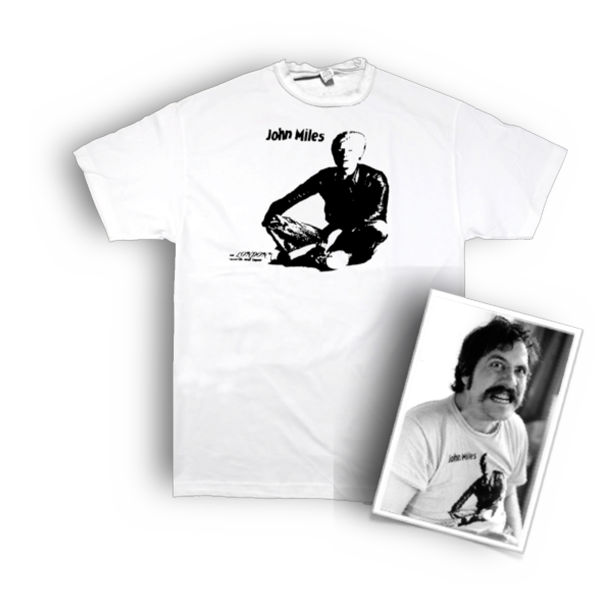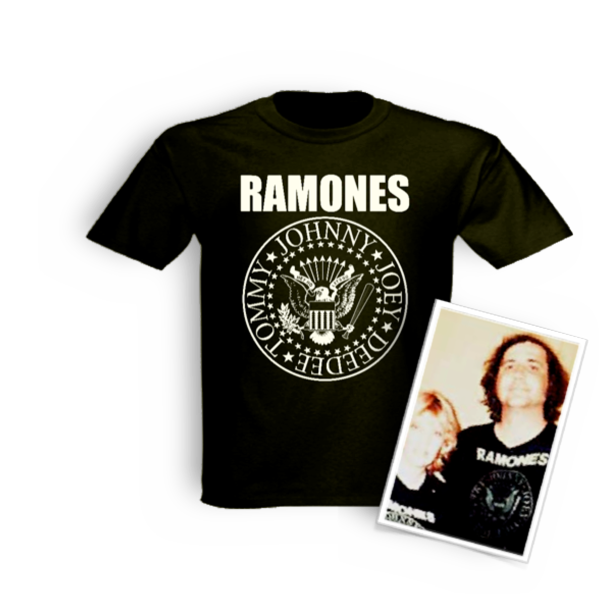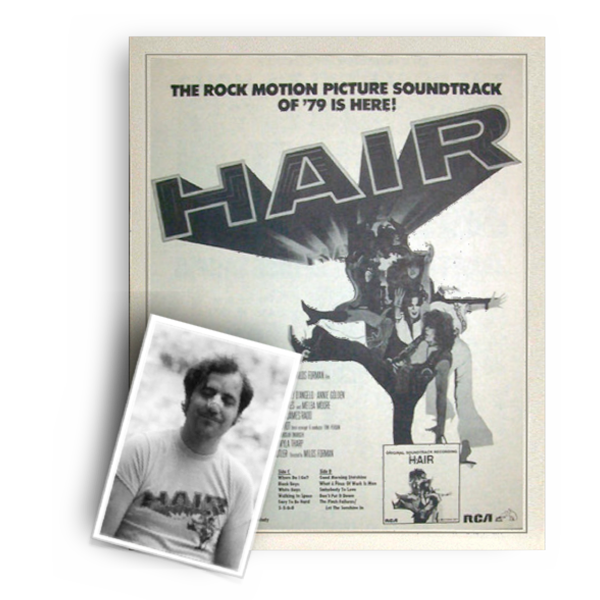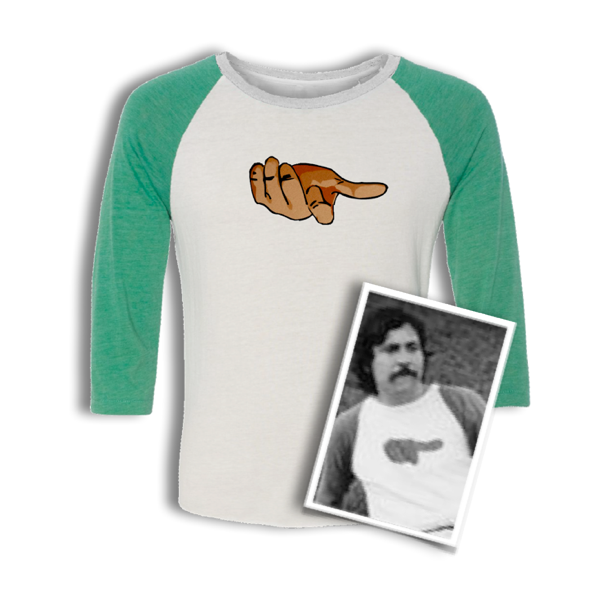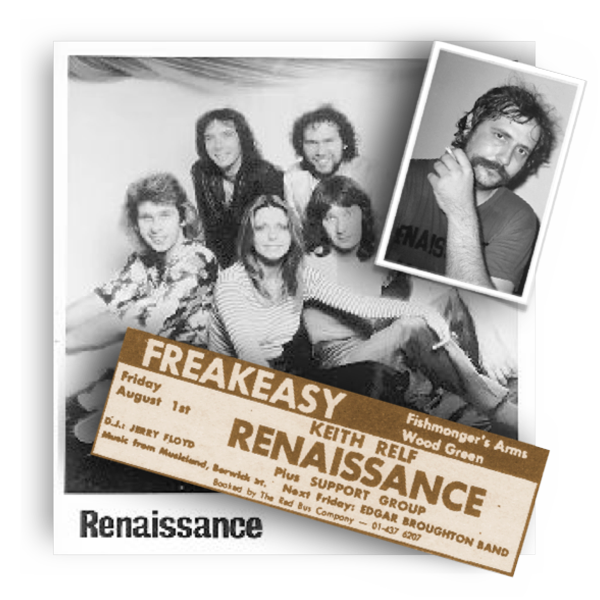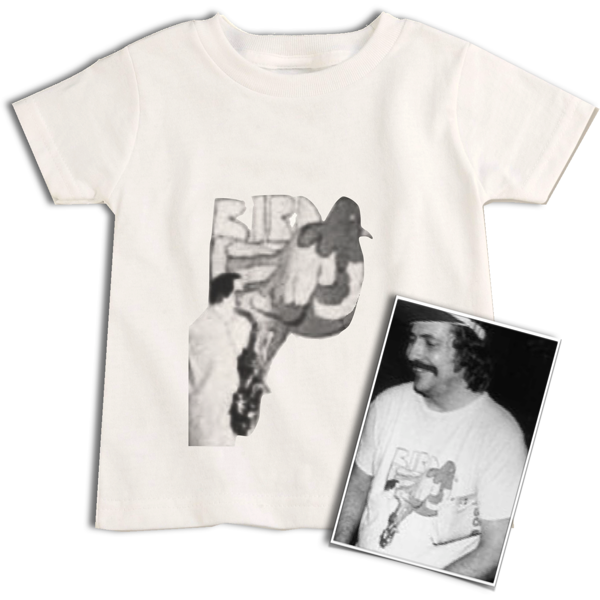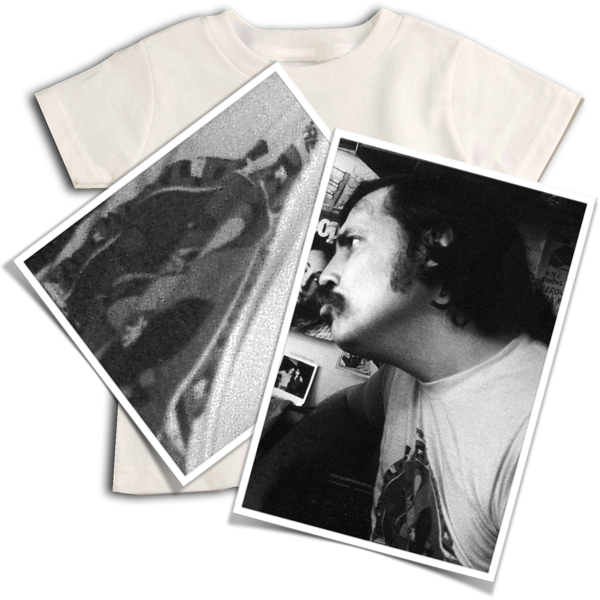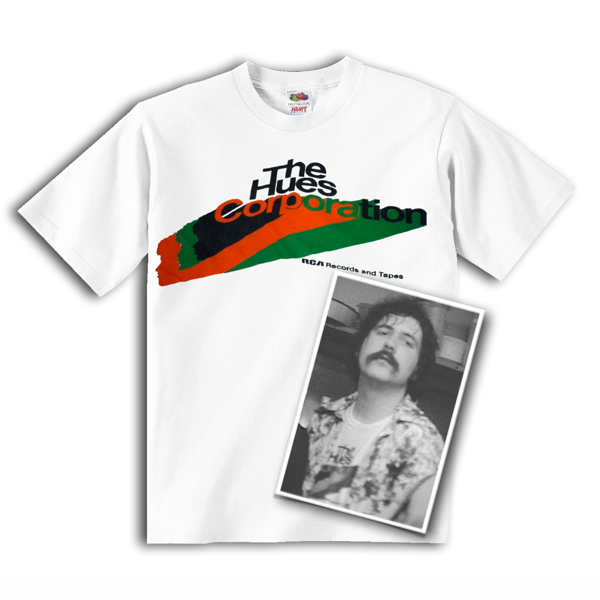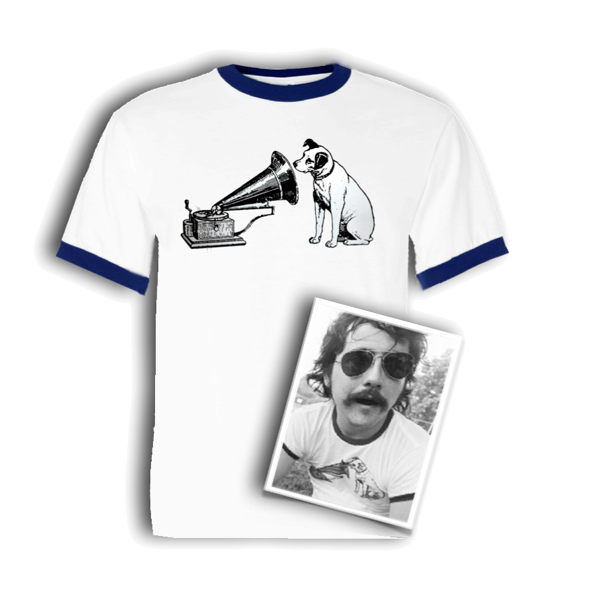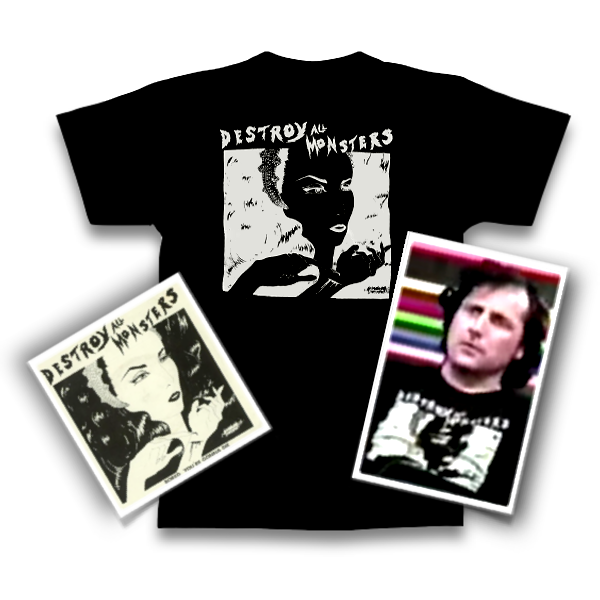"Ripley's Believe It Or Not!"
Believe it or not, Lester was a hardcore comics enthusiast, especially of the comics of R. Crumb, who was responsible for Creem's "Boy Howdy!" logo. In fact, believe it or not, Lester often exited record and bookstores with albums, rock magazines and comic books all in the same bag. The occult became a favorite subject for Lester during his teen years, so, believe it or not, it's not farfetched that he would perform at CBGB's in a "Ripley's Believe It Or Not!" t-shirt, as shown in this 1977 photo by Bob Gruen. While Robert Ripley parlayed the "Believe It Or Not" concept into a multi-million dollar entertainment empire of comic books, TV programs, novelty publications, traveling shows, museums, and even a Milton Bradley game, the franchise's t-shirts, believe it or not, weren't widely available; Bangs, then, is either wearing a limited edition Ripley's shirt (perhaps acquired at a comics convention) or a custom transfer job from one of the many shopping mall t-shirt shops that, believe it or not, were trending during the 1970s. If you think you know the source of Lester's t-shirt image, please e-mail us. Believe it or not, we'd appreciate hearing from you.


